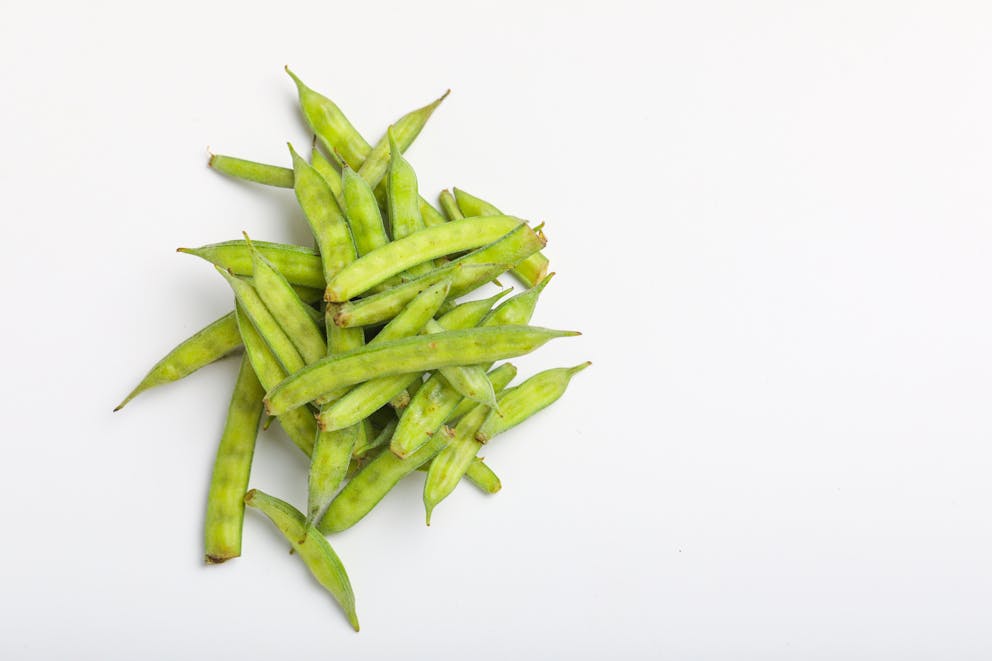Xanthan Gum vs. Guar Gum – Are They Keto-Friendly?

Healthy Keto Acceptable Foods List
Explore a comprehensive list of foods and beverages that align with Healthy Keto®
Identify which foods support fat-burning and metabolic health
Discover nutritious options for fats, proteins, and vegetables to support your health goals
Learn about common foods that aren’t Healthy Keto-approved

Healthy Keto Acceptable Foods List
Explore a comprehensive list of foods and beverages that align with Healthy Keto®
Identify which foods support fat-burning and metabolic health
Discover nutritious options for fats, proteins, and vegetables to support your health goals
Learn about common foods that aren’t Healthy Keto-approved

Healthy Keto Acceptable Foods List
Explore a comprehensive list of foods and beverages that align with Healthy Keto®
Identify which foods support fat-burning and metabolic health
Discover nutritious options for fats, proteins, and vegetables to support your health goals
Learn about common foods that aren’t Healthy Keto-approved

Healthy Keto Acceptable Foods List
Explore a comprehensive list of foods and beverages that align with Healthy Keto®
Identify which foods support fat-burning and metabolic health
Discover nutritious options for fats, proteins, and vegetables to support your health goals
Learn about common foods that aren’t Healthy Keto-approved

Healthy Keto Acceptable Foods List
Explore a comprehensive list of foods and beverages that align with Healthy Keto®
Identify which foods support fat-burning and metabolic health
Discover nutritious options for fats, proteins, and vegetables to support your health goals
Learn about common foods that aren’t Healthy Keto-approved

Healthy Keto Acceptable Foods List
Explore a comprehensive list of foods and beverages that align with Healthy Keto®
Identify which foods support fat-burning and metabolic health
Discover nutritious options for fats, proteins, and vegetables to support your health goals
Learn about common foods that aren’t Healthy Keto-approved

Healthy Keto Acceptable Foods List
Explore a comprehensive list of foods and beverages that align with Healthy Keto®
Identify which foods support fat-burning and metabolic health
Discover nutritious options for fats, proteins, and vegetables to support your health goals
Learn about common foods that aren’t Healthy Keto-approved

Healthy Keto Acceptable Foods List
Explore a comprehensive list of foods and beverages that align with Healthy Keto®
Identify which foods support fat-burning and metabolic health
Discover nutritious options for fats, proteins, and vegetables to support your health goals
Learn about common foods that aren’t Healthy Keto-approved

Healthy Keto Acceptable Foods List
Explore a comprehensive list of foods and beverages that align with Healthy Keto®
Identify which foods support fat-burning and metabolic health
Discover nutritious options for fats, proteins, and vegetables to support your health goals
Learn about common foods that aren’t Healthy Keto-approved

Healthy Keto Acceptable Foods List
Explore a comprehensive list of foods and beverages that align with Healthy Keto®
Identify which foods support fat-burning and metabolic health
Discover nutritious options for fats, proteins, and vegetables to support your health goals
Learn about common foods that aren’t Healthy Keto-approved

Healthy Keto Acceptable Foods List
Explore a comprehensive list of foods and beverages that align with Healthy Keto®
Identify which foods support fat-burning and metabolic health
Discover nutritious options for fats, proteins, and vegetables to support your health goals
Learn about common foods that aren’t Healthy Keto-approved

Healthy Keto Acceptable Foods List
Explore a comprehensive list of foods and beverages that align with Healthy Keto®
Identify which foods support fat-burning and metabolic health
Discover nutritious options for fats, proteins, and vegetables to support your health goals
Learn about common foods that aren’t Healthy Keto-approved

Healthy Keto Acceptable Foods List
Explore a comprehensive list of foods and beverages that align with Healthy Keto®
Identify which foods support fat-burning and metabolic health
Discover nutritious options for fats, proteins, and vegetables to support your health goals
Learn about common foods that aren’t Healthy Keto-approved

Healthy Keto Acceptable Foods List
Explore a comprehensive list of foods and beverages that align with Healthy Keto®
Identify which foods support fat-burning and metabolic health
Discover nutritious options for fats, proteins, and vegetables to support your health goals
Learn about common foods that aren’t Healthy Keto-approved

Healthy Keto Acceptable Foods List
Explore a comprehensive list of foods and beverages that align with Healthy Keto®
Identify which foods support fat-burning and metabolic health
Discover nutritious options for fats, proteins, and vegetables to support your health goals
Learn about common foods that aren’t Healthy Keto-approved

Healthy Keto Acceptable Foods List
Explore a comprehensive list of foods and beverages that align with Healthy Keto®
Identify which foods support fat-burning and metabolic health
Discover nutritious options for fats, proteins, and vegetables to support your health goals
Learn about common foods that aren’t Healthy Keto-approved

Healthy Keto Acceptable Foods List
Explore a comprehensive list of foods and beverages that align with Healthy Keto®
Identify which foods support fat-burning and metabolic health
Discover nutritious options for fats, proteins, and vegetables to support your health goals
Learn about common foods that aren’t Healthy Keto-approved

Keto vs. Non-Keto
Quickly compare keto-friendly foods with non-keto options for easy reference
Use this wallet card to make informed food choices while shopping or dining out
Identify fake keto foods and ingredients that you should avoid
Simplify decision-making with clear, practical guidelines

Keto vs. Non-Keto
Quickly compare keto-friendly foods with non-keto options for easy reference
Use this wallet card to make informed food choices while shopping or dining out
Identify fake keto foods and ingredients that you should avoid
Simplify decision-making with clear, practical guidelines

Keto vs. Non-Keto
Quickly compare keto-friendly foods with non-keto options for easy reference
Use this wallet card to make informed food choices while shopping or dining out
Identify fake keto foods and ingredients that you should avoid
Simplify decision-making with clear, practical guidelines

Keto vs. Non-Keto
Quickly compare keto-friendly foods with non-keto options for easy reference
Use this wallet card to make informed food choices while shopping or dining out
Identify fake keto foods and ingredients that you should avoid
Simplify decision-making with clear, practical guidelines

Keto vs. Non-Keto
Quickly compare keto-friendly foods with non-keto options for easy reference
Use this wallet card to make informed food choices while shopping or dining out
Identify fake keto foods and ingredients that you should avoid
Simplify decision-making with clear, practical guidelines

Keto vs. Non-Keto
Quickly compare keto-friendly foods with non-keto options for easy reference
Use this wallet card to make informed food choices while shopping or dining out
Identify fake keto foods and ingredients that you should avoid
Simplify decision-making with clear, practical guidelines

Keto vs. Non-Keto
Quickly compare keto-friendly foods with non-keto options for easy reference
Use this wallet card to make informed food choices while shopping or dining out
Identify fake keto foods and ingredients that you should avoid
Simplify decision-making with clear, practical guidelines

Keto vs. Non-Keto
Quickly compare keto-friendly foods with non-keto options for easy reference
Use this wallet card to make informed food choices while shopping or dining out
Identify fake keto foods and ingredients that you should avoid
Simplify decision-making with clear, practical guidelines

Keto vs. Non-Keto
Quickly compare keto-friendly foods with non-keto options for easy reference
Use this wallet card to make informed food choices while shopping or dining out
Identify fake keto foods and ingredients that you should avoid
Simplify decision-making with clear, practical guidelines

Keto vs. Non-Keto
Quickly compare keto-friendly foods with non-keto options for easy reference
Use this wallet card to make informed food choices while shopping or dining out
Identify fake keto foods and ingredients that you should avoid
Simplify decision-making with clear, practical guidelines

Keto vs. Non-Keto
Quickly compare keto-friendly foods with non-keto options for easy reference
Use this wallet card to make informed food choices while shopping or dining out
Identify fake keto foods and ingredients that you should avoid
Simplify decision-making with clear, practical guidelines

Keto vs. Non-Keto
Quickly compare keto-friendly foods with non-keto options for easy reference
Use this wallet card to make informed food choices while shopping or dining out
Identify fake keto foods and ingredients that you should avoid
Simplify decision-making with clear, practical guidelines

Keto vs. Non-Keto
Quickly compare keto-friendly foods with non-keto options for easy reference
Use this wallet card to make informed food choices while shopping or dining out
Identify fake keto foods and ingredients that you should avoid
Simplify decision-making with clear, practical guidelines

Keto vs. Non-Keto
Quickly compare keto-friendly foods with non-keto options for easy reference
Use this wallet card to make informed food choices while shopping or dining out
Identify fake keto foods and ingredients that you should avoid
Simplify decision-making with clear, practical guidelines

Keto vs. Non-Keto
Quickly compare keto-friendly foods with non-keto options for easy reference
Use this wallet card to make informed food choices while shopping or dining out
Identify fake keto foods and ingredients that you should avoid
Simplify decision-making with clear, practical guidelines

Keto vs. Non-Keto
Quickly compare keto-friendly foods with non-keto options for easy reference
Use this wallet card to make informed food choices while shopping or dining out
Identify fake keto foods and ingredients that you should avoid
Simplify decision-making with clear, practical guidelines

Keto vs. Non-Keto
Quickly compare keto-friendly foods with non-keto options for easy reference
Use this wallet card to make informed food choices while shopping or dining out
Identify fake keto foods and ingredients that you should avoid
Simplify decision-making with clear, practical guidelines
Xanthan Gum vs. Guar Gum—what’s the difference, and are they keto-friendly?
Both xanthan and guar gum are low-carb binding and thickening agents that serve as popular substitutes for high-carb ingredients such as flour and cornstarch.
Discover the differences between xanthan gum and guar gum, comparing their nutritional value, effects on health, and suitability for maintaining ketosis.

Xanthan gum
Xanthan gum was developed in the early 1960s as a biodegradable thickening agent to replace synthetic materials in various agriculture and food production applications.
Today, xanthan gum has proven to be an extremely versatile ingredient that is now utilized in many industries, such as cosmetics, pharmaceuticals, and oil drilling, in addition to food production.
What is it?
Xanthan gum, often misspelled as xanthum gum or xantham gum, is a powdery substance produced by fermenting glucose derived primarily from corn and using a bacterial strain known as Xanthomonas campestris.
Used as a thickener and emulsifier for liquids, xanthan gum powder serves as a highly effective substitute for gluten in carbohydrate-rich flours like wheat, rye, or barley.
Uses
Xanthan gum's gluten-like properties play a prominent role in creating ketogenic and gluten-free baked goods.
This enables those following carbohydrate or gluten-restrictive diets to prepare bakery items that resemble the texture and structure of their glutenous counterparts.
Because xanthan gum helps bind wet and dry ingredients, it proves especially useful in gluten-free bread baking and helps make comparable wheat flour alternatives such as gluten-free biscuits, pizzas, and cakes that require elasticity and chewiness.
Xanthan gum also emulsifies wet ingredients, making it an excellent choice for low-carb sauces, dressings, and pastry fillings.
Carbs
Two teaspoons (nine grams) of xanthan gum contains around seven grams of carbohydrates in the form of soluble fiber.
Given that soluble fiber is not digested and absorbed into the body, xanthan gum effectively results in a net carb content of zero.
Taste
Xanthan gum is tasteless and does not affect the flavor of foods it is added to, making it a preferred thickener in both sweet and savory dishes.
Watch the video below to learn more about the differences between xanthan gum and guar gum.
Xanthan Gum and Guar Gum: Keto Friendly?
Guar gum
Guar gum has been used for centuries as an integral ingredient in traditional culinary and medicinal practices.
What is it?
Guar gum, derived directly from the guar bean, is a versatile thickener and stabilizer used in a wide range of recipes and industrial applications such as pharmaceuticals, cosmetics, paper production, textiles, and oil well drilling.
Uses
In the kitchen, guar gum is used to make various food products such as salad dressings, sauces, cheeses, and beverages.
Guar gum helps create keto-friendly bread and is a common ingredient found in gluten-free flour and dairy-free products.
In baking, guar gum is known for yielding a softer, more delicate texture, ideal for baked goods requiring a gentle, fluffy consistency, such as muffins, scones, and quick breads.
While it can also effectively thicken soups and stews, guar gum is a particularly effective ingredient in ice cream making due to its ability to maintain a smooth texture while preventing crystallization.
In addition to its culinary uses, guar gum's ability to thicken and stabilize makes it an invaluable ingredient in cosmetics, where it enhances the feel and shelf-life of products.
Research published in the Journal of Food Science and Technology found that guar gum offers a variety of potential health benefits.
These include mitigating irritable bowel syndrome (IBS) symptoms, lowering cholesterol by improving bile production, reducing high blood glucose levels by slowing carbohydrate absorption and supporting weight loss by improving satiety.
Taste
Similar to xanthan gum, guar gum is tasteless and doesn’t impart any flavor to the recipe it's used in.
Carbs
A nine-gram serving of guar gum contains 8.1 grams of carbohydrates in the form of fiber, making it a zero net carb ingredient.

Xanthan gum vs. guar gum: Which is healthier?
Xanthan gum and guar gum are popular food additives with several potential health benefits, including improved digestion, blood sugar regulation, and weight management.
However, recent studies have noted potential concerns about the effects of both xanthan gum and guar gum on the gut microbiome and overall health.
Evidence published in Current Developments in Nutrients found that guar gum can alter the gut microbiota in ways that may increase susceptibility to gastrointestinal inflammatory conditions, including colitis.
Moreover, xanthan gum is derived from crops that may have been exposed to high concentrations of herbicides and pesticides, frequently used in large-scale industrial farming.
Dr. Berg explains, “Non-organic staple crops such as soy and corn often contain residues of pesticides, herbicides, and insecticides, which can have detrimental health impacts and are linked to various chronic diseases, cancer, hormonal imbalances, and infertility.”
Research published in Toxics supports the notion that these chemicals can be detrimental to the body, leading to health problems such as disruptions to the endocrine system, alterations in the gut microbiome, increased risk of chronic inflammation, and reproductive issues.
A study in the Journal of Pediatric Gastroenterology and Nutrition also found that xanthan-based thickeners could cause necrotizing enterocolitis, a severe gastrointestinal disease affecting infants.
Determining which option is healthier primarily depends on the source and quality of the product.
Because guar beans don’t tend to contain genetically modified organisms (GMOs), choosing an organic guar gum product is generally considered the best choice.
Research on the long-term health effects of both guar gum and xanthan gum is limited, and it’s recommended to consult a healthcare professional before adding these ingredients to your diet, especially if you are preparing meals for young children and babies.

Can you use xanthan and guar gum on keto?
Because of their high fiber content, both xanthan gum and guar gum have zero net carbs, making them suitable ingredients for those following a low-carb diet.
However, it’s recommended to choose organic and non-GMO certified products, which is a cornerstone of Healthy Keto®.
Healthy Keto is a nutritious high-fat diet that advocates avoidance of non-organic and GMO-containing produce to minimize the potential health risks associated with genetically modified foods that are often exposed to pesticides and herbicides.

Key takeaways
Xanthan Gum vs. Guar Gum—what’s the difference, and are they keto-friendly?
Both xanthan and guar gum are commonly used in low-carb recipes due to their high fiber content and zero net carb impact, making them excellent thickening and stabilizing agents without affecting ketosis.
The soluble fiber in both gums offers benefits such as aiding digestion, managing blood sugar levels, and supporting weight loss. However, recent evidence suggests both options can have potentially harmful effects on the body with excessive use.
Selecting organic and non-GMO versions of these products is crucial for maintaining a Healthy Keto® lifestyle.
FAQ
1. Why do people avoid xanthan gum?
Xanthan gum is made primarily from corn and soy, two crops commonly known as genetically modified organisms (GMOs), which can adversely affect health and explains why some people avoid xanthan gum.
2. Does xanthan gum have an aftertaste?
No, xanthan gum doesn't have an aftertaste, making it an ideal ingredient to enhance texture without affecting the taste. Because xanthan gum is gluten and carb-free, it’s a popular ingredient commonly used in ketogenic and gluten-free cooking.
3. Guar gum vs. xanthan gum: what’s the difference?
Xanthan gum is produced by fermenting sugars with Xanthomonas campestris bacteria, while guar gum is derived directly from the seeds of a bean-like plant known as the guar plant.
They both are popular thickening agents that are frequently used in low-carb and gluten-free recipes.
4. How many carbs are in xanthan and guar gum?
Both xanthan gum and guar gum contain zero net carbs, making them suitable ingredients for keto.
5. Can I use xanthan gum and guar gum on keto?
Yes, both xanthan gum and guar gum are suitable for a ketogenic diet due to their zero net carb content.
However, it is important to ensure the product you plan to use is non-GMO certified to minimize the potential health risks associated with genetically modified food ingredients.
6. Is xanthan gum GMO?
Xanthan gum is typically derived from corn or soy, which are common GMO crops, and most xanthan gum products are classified as GMO unless declared non-GMO on the product labeling.
7. Can you substitute guar gum for xanthan gum?
Yes, guar gum and xanthan gum are interchangeable in cooking. However, they produce slightly different textural effects and work better for some applications than others.
8. Are xanthan gum and guar gum gluten-free?
Yes, xanthan gum and guar gum are both gluten-free and two of the most common gluten-free thickening and binding ingredients used in gluten-free baking.
9. Can I use xanthan or guar gum as an alternative for baking powder?
No, xanthan gum and guar gum cannot be used as alternatives for baking powder.
Baking powder acts as a leavening agent, while xanthan gum and guar gum are primarily used as thickening and stabilizing agents.
Sources
Previous blog
Why Stress Makes Your Belly FatNext blog
What is a Carbohydrate SimplifiedTags

Popular
08/21/2024
55K views
02/23/2025
46.3K views
11/18/2024
277.5K views
03/18/2024
11/21/2022




